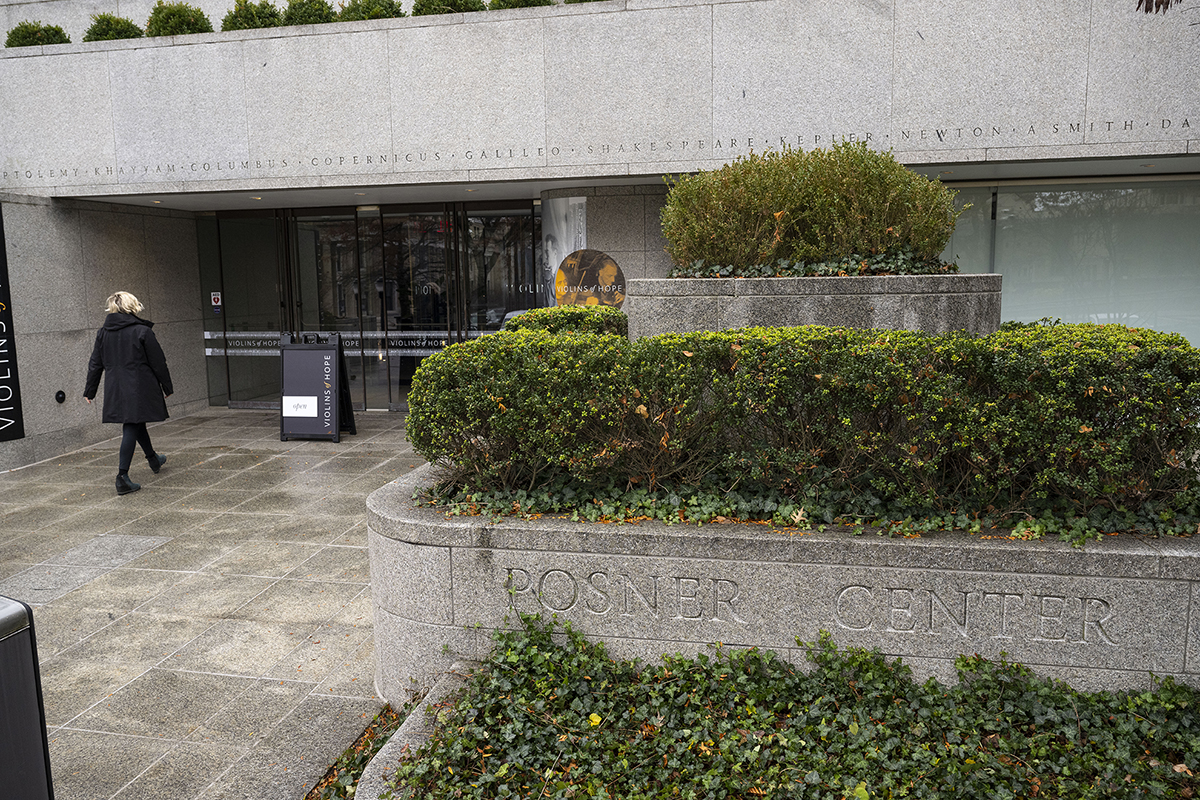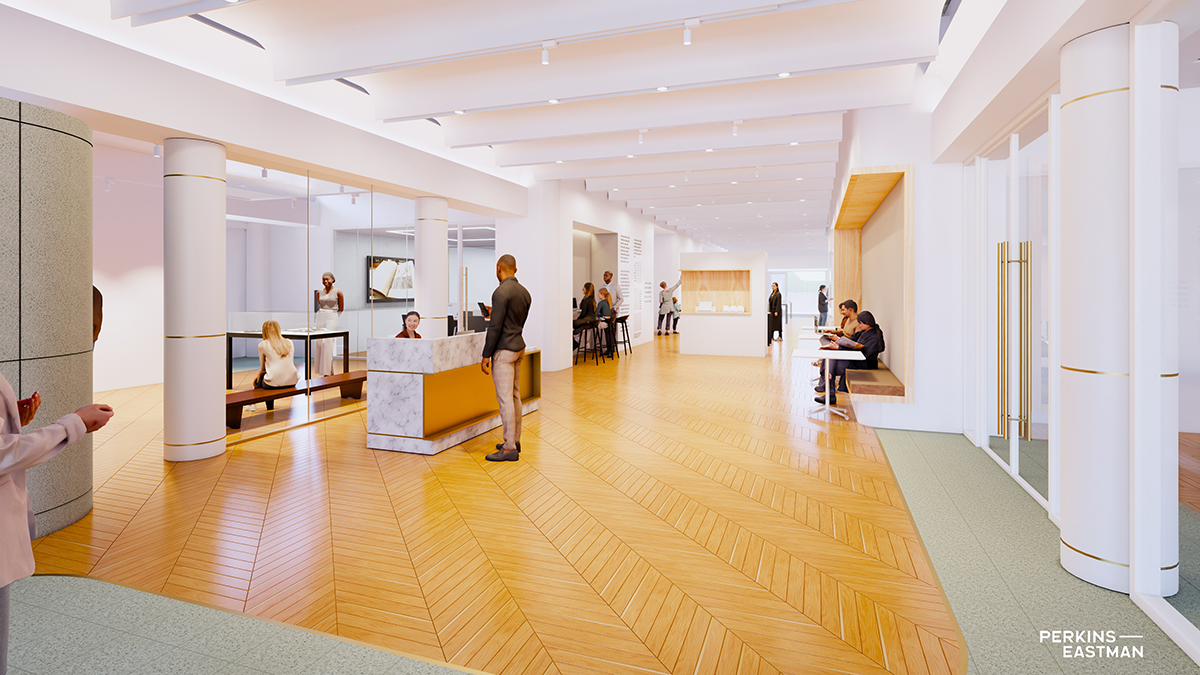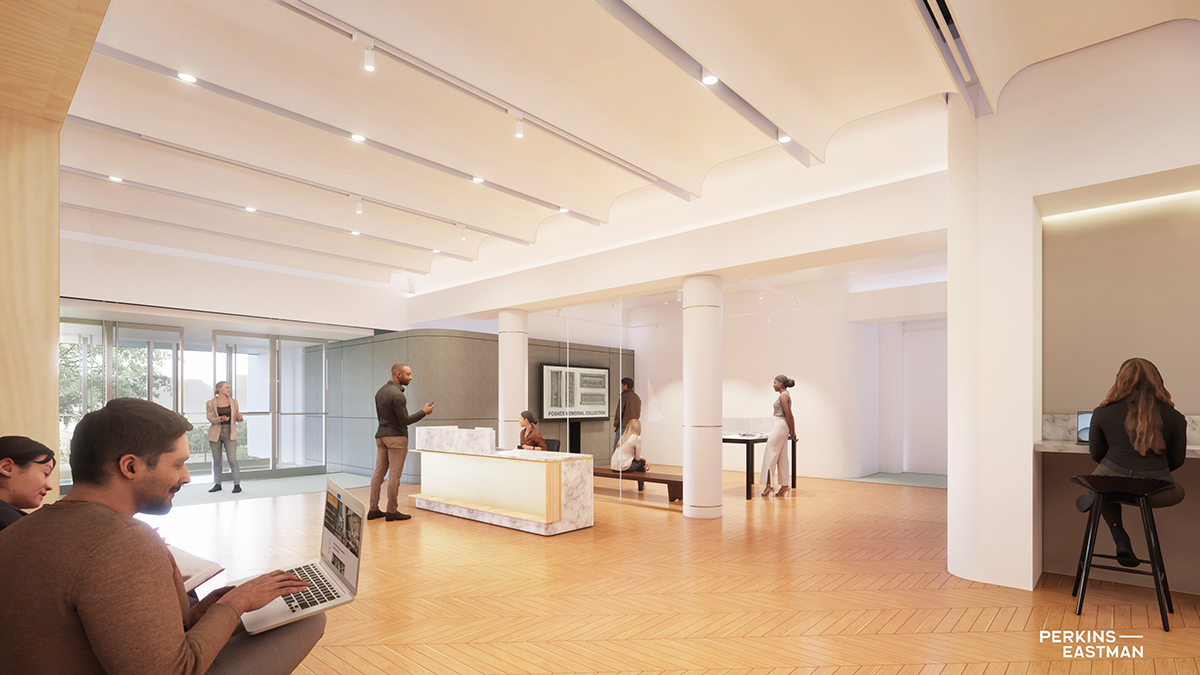
The Posner Center is home to CMU Libraries Special Collections — the University’s repository for rare books, manuscripts, and early calculating devices and cryptographic machines. Part museum and part laboratory for the humanities, the Posner Center is Carnegie Mellon’s destination for discovery, research, and hands-on engagement with the past.
What’s Next
Beginning January 2025, the interior of the Posner Center will undergo a major renovation. The new design will support and promote Special Collections’ four core activities:
- Student engagement & instruction
- Exhibitions and public events
- Collection storage, security, and preservation
- Research
This transformation is made possible through a landmark $8 million gift from the Posner Foundation of Pittsburgh. The gift provides critical capital support for the renovation itself as well as operating funds to expand staffing, access, and programming. With this extraordinary investment, the Posner Center is primed to become a dynamic and enduring resource for CMU students, faculty, and the broader scholarly community — advancing the University’s leadership in research, education, and cultural preservation.
Designed by Perkins Eastman architects, the redeveloped interior creates a welcoming and flexible space for research and discovery. The renovation will transform the Posner Center into a leading institute for cultural heritage — one that will preserve and provide access to rare books and artifacts, support student and faculty engagement, host innovative exhibitions, and inspire new scholarship.


Some of the spaces and features of the renovated Posner Center include:
- Silent reading room for researchers and small course visits (~300 sq ft) Classroom & flex space for collections-based instruction and large events (~1200 sq ft)
- Digitization lab
- Secure shelving and storage to accommodate the collection’s long-term growth Public exhibition gallery with museum-quality display vitrines and adaptive lighting
- Secure lockers for visiting researchers and CMU students
- Public-facing reception area and welcome desk
- Work and office spaces for Special Collections staff
- Seating and café-style worktops for visitors and students
- New ceilings, finishes, wood flooring, and dimmable LED track lighting in all public areas
Project Team
| Architects: | Perkins Eastman |
| Construction Manager: | Dick Building Company |
| Campus Design & Facilities Development Team: | Jamison Fielding, Kevin Ford, Utkarsh Ghildyal, Ralph Horgan, Bob Reppe |
| CMU Libraries Team: | Blair Dunckel, Anne Kramer, Sam Lemley, Robin Mitchell, Joelle Pitts, Keith Webster |
Project Video
Project Timeline
| January 2025: | Demolition & construction begin |
| November 2025 (projected): | Posner Center reopens |
| Fall 2025: | Inaugural exhibition and reopening event |
About the Building
Designed by Paul Whitehead of WTW Architects and opened in 2004, the Posner Center is an 11,400-square-foot earth-sheltered building gifted to the University by Henry and Helen Posner Jr. in memory of their parents, Henry and Ida Posner Sr. The rooftop features the Kraus Campo, a meditative outdoor space created by alumnus artist Mel Bochner and landscape architect Michael Van Valkenburgh. Until 2024, the Posner Center served as the venue for CMU Board of Trustees meetings and university events.
About Special Collections
Special Collections is Carnegie Mellon University’s repository for rare books, manuscripts, and early scientific instruments and calculating machines. Special Collections originated with the 1964 donation of Rachel McMasters Miller Hunt’s non-botanical books and has grown through the addition of important gifts, including the 1976 bequest of Charles J. Rosenbloom, the deposit of the Posner Memorial Collection in 1978, and the gift of the Traub-McCorduck collection in 2018.
Areas of collection strength include the history of science, robotics, cryptology, and computing; early Shakespeare editions (including the Rosenbloom First Folio); the history of the book; and graphic arts and fine printing.
Supporting Special Collections
Your support makes possible transformative exhibitions, research, and other programs that bring students, scholars, and members of the public into Special Collections and CMU’s Libraries.
For more information or to support Special Collections, please contact:
ROBIN MITCHELL
Chief Advancement Officer, University Libraries
734.834.9220
robinmit@andrew.cmu.edu
